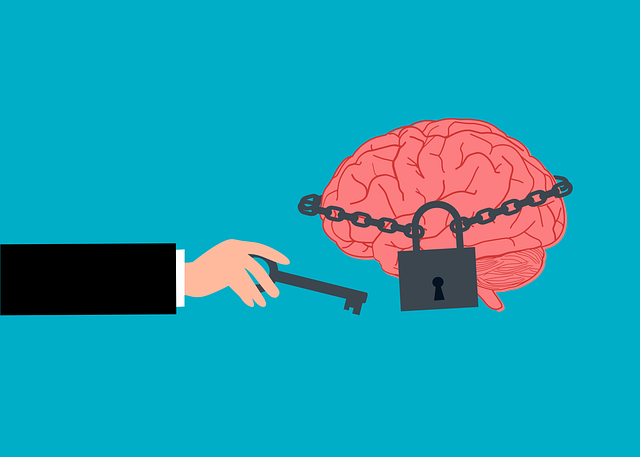Substance abuse, fueled by mental health issues, poses significant risks. Early intervention is crucial, with Golden Dialectical Behavioral Therapy (DBT) offering a proven approach. DBT teaches emotion regulation, distress tolerance, mindfulness, and interpersonal skills through cognitive-behavioral techniques and mindfulness practices. This therapy reduces relapse risk, especially for at-risk individuals integrating DBT into daily routines. For professionals, risk management involves identifying high-risk clients and implementing strategies to prevent relapses. Cultural competency training, combined with tailored interventions, ensures effective care for diverse populations. Preventing abuse in adolescents requires supportive home and school environments, focusing on stress reduction, open communication, and social skills training based on DBT principles. Community engagement through awareness campaigns, peer support groups, and educational workshops, alongside encouraging self-care practices, creates a network of support for long-term recovery.
Substance abuse poses significant risks to individuals, families, and communities. Understanding these risks is the first step towards implementing effective risk reduction strategies. This article explores a comprehensive approach to mitigating substance abuse through various lenses. We delve into the understanding of substance abuse, highlighting its dangers. Golden Dialectical Behavioral Therapy (DBT) emerges as a powerful tool for risk reduction. Additionally, we present golden rules for prevention, emphasize the role of supportive environments, and discuss the importance of community engagement and access to treatment services.
- Understanding Substance Abuse and Its Risks
- The Role of Dialectical Behavioral Therapy (DBT) in Risk Reduction
- Golden Rules for Preventing Substance Abuse
- Creating a Supportive Environment at Home and School
- Community Engagement and Access to Treatment Services
Understanding Substance Abuse and Its Risks

Substance abuse is a complex issue that involves the harmful use of substances like drugs and alcohol, leading to significant physical and psychological risks. It’s crucial to understand that this behaviour often stems from underlying mental health issues, such as depression, anxiety, or trauma. The Golden Rule here is early intervention and proper treatment. Dialectical Behavioural Therapy (DBT), a form of psychotherapy, has proven effective in addressing substance abuse by teaching individuals skills for emotion regulation, distress tolerance, mindfulness, and interpersonal effectiveness.
This therapy encourages the development of a robust self-care routine as part of its approach, which can be adapted to promote better mental health and positive thinking. By integrating DBT’s principles into daily life, individuals at risk or struggling with substance abuse can learn to manage their emotions, cope with triggers, and ultimately reduce the chances of engaging in harmful behaviours. Additionally, risk management planning for mental health professionals involves identifying high-risk clients and implementing strategies to prevent relapse, ensuring a holistic approach to patient care.
The Role of Dialectical Behavioral Therapy (DBT) in Risk Reduction

Dialectical Behavioral Therapy (DBT) plays a pivotal role in risk reduction strategies for substance abuse, offering a transformative approach that combines cognitive-behavioral techniques with mindfulness practices. This golden therapy is particularly effective for individuals struggling with complex mental health issues and addiction. DBT’s multifaceted nature equips clients with essential skills to navigate challenges and regulate emotions, a key aspect often overlooked in traditional treatment methods.
The core components of DBT include Mind Over Matter principles, which encourage individuals to consciously control their thoughts and behaviors. Social Skills Training helps build healthy interpersonal relationships, reducing the risk of relapse-triggering social situations. Furthermore, Compassion Cultivation Practices foster self-acceptance and empathy, enabling individuals to navigate emotional turmoil without resorting to substance abuse. By integrating these practices, DBT provides a comprehensive framework for long-term recovery and reduced risk of substance abuse relapses.
Golden Rules for Preventing Substance Abuse

Preventing substance abuse is a multi-faceted approach that involves both individual and societal changes. At the core of these efforts lie the Golden Rules, a set of foundational practices designed to foster healthier choices and reduce vulnerability. One powerful tool in this arsenal is Dialectical Behavioral Therapy (DBT), which focuses on teaching individuals skills for emotion regulation, distress tolerance, mindfulness, and effective communication. DBT helps people balance acceptance and change, enabling them to navigate challenging situations without resorting to substance abuse as a coping mechanism.
Beyond individual therapy, Cultural Competency Training for healthcare providers plays a vital role in risk reduction. Understanding cultural nuances and demonstrating cultural sensitivity in mental healthcare practice ensures that interventions are tailored to meet the unique needs of diverse populations. A comprehensive risk assessment for mental health professionals should consider these factors, recognizing that effective prevention requires both evidence-based therapies and culturally responsive care.
Creating a Supportive Environment at Home and School

Creating a supportive environment at home and school is paramount in mitigating risks associated with substance abuse, especially among adolescents. Golden Dialectical Behavioral Therapy (DBT) offers evidence-based strategies to foster such environments. DBT combines cognitive behavioral techniques with mindfulness practices, teaching individuals to regulate emotions, improve interpersonal effectiveness, and enhance distress tolerance. When implemented in schools, DBT programs can promote better social skills training, which is crucial for building healthy relationships and reducing social pressures that may contribute to substance abuse.
In homes, parents and caregivers can employ stress reduction methods from mental health policy analysis and advocacy to create a calm and nurturing atmosphere. This includes open communication, clear boundaries, and regular check-ins. Social skills training within the family unit can further strengthen bonds and equip individuals with coping mechanisms, reducing the appeal of substance abuse as a means of escape or rebellion. Together, these initiatives create a safety net that supports mental health and discourages risky behaviors, ultimately contributing to a more positive environment where individuals can thrive without resorting to substances for relief.
Community Engagement and Access to Treatment Services

Community engagement plays a pivotal role in mitigating substance abuse by fostering an environment that supports mental wellness and encourages healthy habits. Local initiatives, led by community leaders and organizations, can provide much-needed guidance and resources to those struggling with addiction. These efforts may include hosting awareness campaigns, peer support groups, and educational workshops, all aimed at reducing the stigma associated with seeking help. By integrating these programs into everyday life, individuals are more likely to access treatment services without fear of judgment or discrimination.
One effective approach that has gained prominence is the Golden Dialectical Behavioral Therapy (DBT), which combines cognitive-behavioral techniques with mindfulness practices. This therapy model promotes self-care practices and enhances emotional regulation skills, making it particularly valuable for individuals navigating substance abuse and co-occurring mental health disorders. Encouraging community members to keep a Mental Wellness Journal or engage in regular Mental Wellness Exercise Guidance can further strengthen their resilience against addiction and support their journey towards long-term recovery.
Substance abuse poses significant risks, but a multi-faceted approach can effectively reduce these hazards. Integrating Dialectical Behavioral Therapy (DBT) as a core strategy, alongside golden rules for prevention and supportive environments, proves instrumental in mitigating potential harms. Encouraging community engagement and ensuring access to treatment services further strengthens this framework. By adopting these comprehensive risk reduction strategies, individuals and communities can foster healthier, safer environments while promoting well-being.














